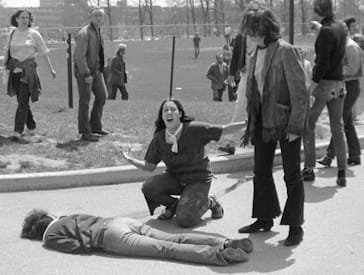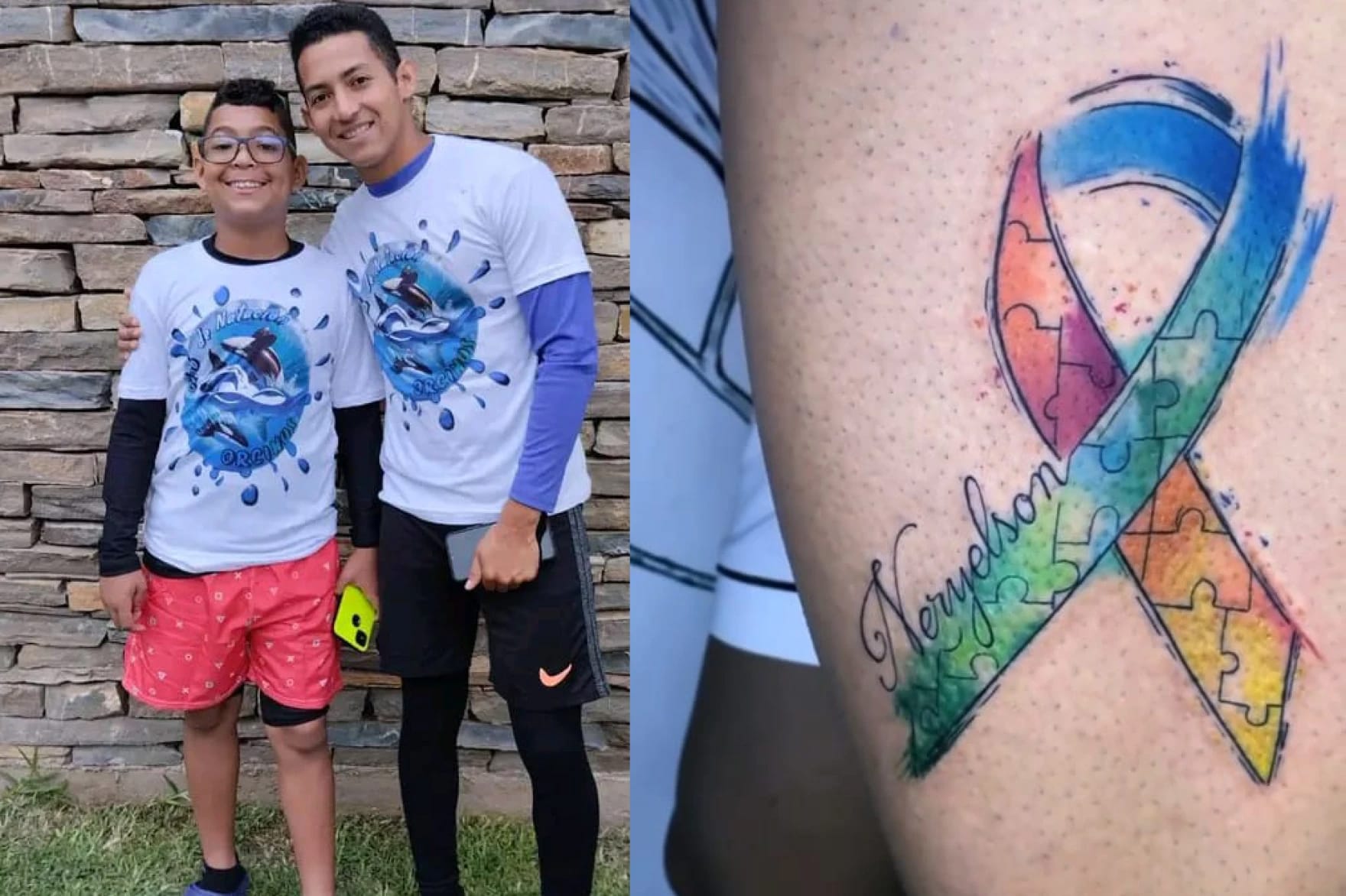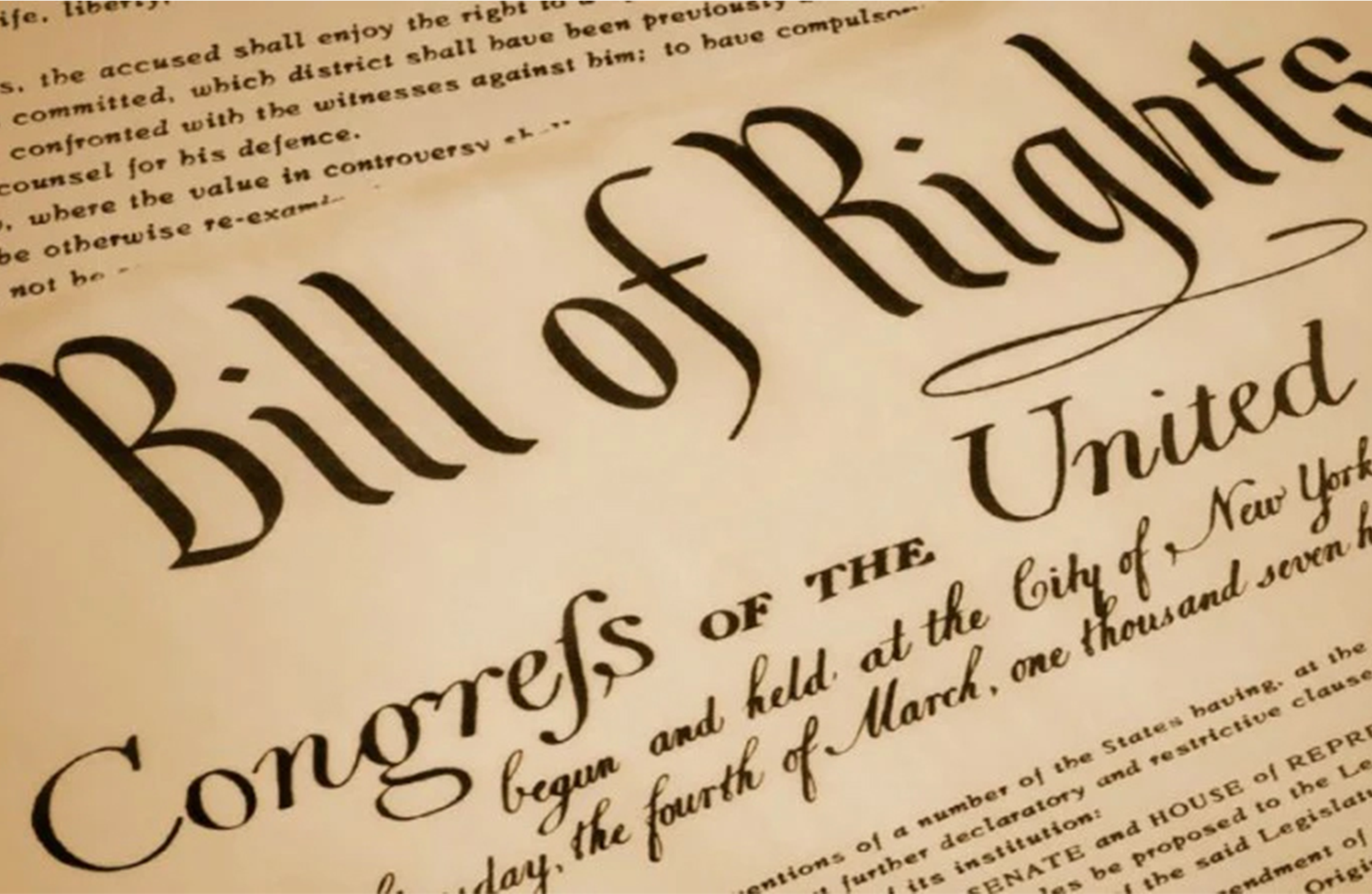Narrated by Ted Miller
“Then they came for me — and there was no one left to speak for me.”
— Martin Niemöller
We take the rule of law for granted — that it will protect us from harm and guarantee our individual rights. But the law is only a set of rules we agree to, and it can only be effective when both the government and the people follow the law.
For most of human history, the law was established by a sovereign — a monarch with absolute power, achieved and maintained through violence and subjugation of the people under its rule. The king was above the law. The king was the law. An absolute monarch can arbitrarily create, change, ignore, or apply the law on a whim, all too often at the expense of the people.
The United States was founded on the principle that the law should be derived from the people, not dictated by a king. The Declaration of Independence famously states that “all men are created equal” and that governments “derive their power from the consent of the governed.”
In establishing the Constitution of the United States, the framers instituted a government in which the people are the sovereign, not the government; and they built in checks and balances to ensure no one is above the law.
In the United States, the Constitution reigns supreme. When I entered the United States Naval Academy at eighteen years old, I swore an oath to the Constitution — not to a king, not to the president, not to any person — but to an idea embodied in the rule of law. Every elected official and public office holder, including the President of the United States, swears the same oath.
The Constitution establishes three co-equal branches of government: The Legislative, the Executive, and the Judicial. Like the childhood game of rock-paper-scissors, no one branch has supreme authority over the other two. Instead, the system is designed to protect the interests of the people and to ensure the rule of law is applied equally and fairly.
The framers also knew that without certain restraints, government officials could abuse their power and infringe on the rights of the people to control the government. The Bill of Rights, which are the first ten amendments to the Constitution, ensure the people are protected from government overreach.
The First Amendment gives us the right to free speech, to a free press, to assemble in protest, to petition the government, and to practice religion without government interference. The Fourth Amendment protects us from unreasonable search and seizure, arbitrary arrest, and detention without a warrant and probable cause. The Fifth and Fourteenth Amendments ensure our rights are protected in criminal and civil legal proceedings, including our right to due process.

Bill of Rights disregarded
As I write this, less than ninety days into his second term, Donald Trump has brazenly violated the Constitution, ignored the law as established by Congress, and defied the orders of the courts, including the Supreme Court.
He has intimidated the press, called for the removal of judges he doesn’t like, disbanded federal agencies (causing great international harm), and impounded funds established and appropriated by Congress. He has withheld billions of dollars from universities to punish them for their ‘woke’ policies. He has sued law firms who dare to disagree with him. He has detained and deported people for exercising their First Amendment rights. And he has rounded up and sent innocent immigrants to a notorious prison in El Salvador in violation of their fourth amendment rights to due process. He has openly mused that U.S. citizens are next.
During his first term, according to former Defense Secretary Mark Esper and former Chairman of the Joint Chiefs of Staff General Mark Milley, Trump wanted the military to “just shoot” Black Lives Matter protesters in 2020. His cabinet and the military stopped him from using violence against protesters then, but will they do so again?
Violent history repeated
On May 4, 1970, during a student protest against the Vietnam War at Kent State University, twenty-eight National Guard troops fired into the unarmed crowd of students, killing four and wounding nine others. This came after increasingly violent rhetoric from political leaders, including President Richard Nixon and Ohio Governor Jim Rhodes, who vilified the student protestors, calling them un-American, revolutionaries, and “bums, blowing up the campuses.” As tensions continued to escalate, the military was called in to supplement the local police in an attempt to disperse the student protesters. But rather than deescalate the situation, violence broke out, and American protesters were killed by their own government.

Two months into his second term, Trump is using the same kind of dehumanizing, violent rhetoric about campus protests. No longer constrained by his cabinet and his advisors, how much longer will it be before peaceful protesters are shot by the government like the unarmed students at Kent State fifty-five years ago?
The Constitution and the law apply to everyone in the United States, regardless of citizenship. That includes the protections afforded under the First, Fourth, Fifth, and Fourteenth amendments.
On March 8, Mahmoud Kahlil, a recent graduate student at Columbia University, was taken from his home by plainclothes agents of the Department of Homeland Security (DHS). Kahlil is a lawful permanent resident of the United States, and is married to a U.S. citizen.
At the time of his arrest, the DHS was uncooperative with Kahlil’s lawyer, and refused to show a warrant as they handcuffed him and took him away. Kahlil has not been charged with any crime but is currently being held in an Immigration and Customs Enforcement (ICE) detention center in Louisiana. The government claims Kahlil is “pro-Hamas” and antisemitic, but his own actions and statements were against antisemitism, and he has never supported Hamas. He and the student protesters were calling for an end to violence against Palestinians and were protesting the policies of Israel and U.S. support for those policies.
Protesting violence is not antisemitic. Protesting violence is not pro-terrorist.
Forcibly removing Kahlil from his home without a warrant or probable cause — and apparently only in retaliation against free speech that the government didn’t like — is a violation of his First and Fourth Amendment rights. And Trump promised that this arrest is only the “first of many” to come. Kahlil is only one of many legal residents being detained and targeted for deportation for exercising their free speech rights in the last month.
Political dissidents imprisoned
On March 15, Donald Trump rounded up and deported over two hundred men, mostly Venezuelan immigrants, to the notoriously cruel Centro de Confinamiento del Terrorismo (CECOT) prison in El Salvador. The men were accused of gang membership with little or no evidence and, ignoring a judge’s order, deported without a hearing or due process. Most had no criminal record, and many were apparently targeted loosely based on tattoos or other symbols. Reports from lawyers and family members indicate that many of those tattoos were personal and had nothing to do with any gang affiliation.

One of the men sent to CECOT was Maryland resident Kilmar Armando Abrego Garcia, married to a U.S. citizen and father to their U.S. citizen child. Abrego Garcia was born in El Salvador, and although he entered the U.S. illegally in 2011 at the age of 16, he was under a protective order preventing his deportation because of his reasonable fear of gang violence — the reason he had fled El Salvador.
The government has admitted in court that Abrego Garcia was deported due to an “administrative error.” Following a ruling by a lower court that Abrego Garcia must be returned to the U.S, the Supreme Court ruled in a unanimous decision that Abrego Garcia’s rights were violated, and that the government must “facilitate his return to the United States.”
Supreme Court ruling ignored
Despite the Supreme Court ruling, the Trump administration claims that there is nothing they can do since he is no longer in the U.S. Justice Sonia Sotomayor said in the decision ordering Abrego Garcia’s return: “The Government’s argument … implies that it could deport and incarcerate any person, including U.S. citizens, without legal consequence, so long as it does so before a court can intervene.”
On April 14, Salvadoran President Nayib Bukele visited the Oval Office. When asked by reporters about Abrego Garcia’s return to the U.S, Trump deferred to Attorney General Pam Bondi, who said they could provide a plane, but that it was up to Bukele. When Bukele was asked, he called Abrego Garcia a “terrorist” and said, “I hope you’re not suggesting that I smuggle a terrorist into the United States. The question is preposterous.”
Trump also told Bukele he would like El Salvador to incarcerate American citizens who have committed crimes. “You’ve got to build five more places,” Trump said — insinuating that Bukele would need more prison capacity to hold all the U.S. citizens Trump wanted to send his way — as the crowd in the Oval Office laughed.
It should go without saying, but sending citizens of the United States to a foreign prison is clearly illegal and a violation of their constitutional rights.
The Trump administration and Bukele are fully capable of returning Abrego Garcia. But they are instead ignoring a legal order to set a precedent that the actions of the president are above the law, and to test the Supreme Court's willingness to hold them accountable.
WE MUST DEMAND RIGHTS FOR EVERYONE
Infringing on the rights of noncitizens is the first step. U.S. citizens are already being illegally detained and deported. Recently the Washington Post reported:
Although wrongful detentions and deportations of U.S. citizens aren’t unheard of, recent news reports of at least seven alleged cases have alarmed attorneys, civil rights advocates, and immigration scholars who say they reveal the dangers of a system accelerating with few safeguards.
Our rights to privacy are actively being attacked by the so-called Department of Government Efficiency. Our freedom to protest is being threatened. The media is being silenced by corporate ownership currying favor with the president.
Although the U.S. has yet to achieve the vision of equality in the Declaration of Independence and the Constitution, I still believe we can achieve liberty and justice for all. But freedom and justice must be protected from despots who don’t believe everyone is equal under the law — corrupt oligarchs who believe, as George Orwell put it, that “some are more equal than others.”
We the people must not be intimidated into silence. We the people must rise up to protect the Constitution. We must use our First Amendment right to protest, to assemble, and to petition for redress. We must continue to demand that our representatives in Congress assert their authority under the Constitution to rein in the Executive branch.
We the people do not consent to the destruction of our government, to the dismantling of our rights, and to the concentration of power in a president who wants to be king.
We the people will not stay silent as the rights of others are violated, one group after another, until there is no one left to speak for us.
We the governed do not consent.
Ted Miller grew up around the world but now lives in Richland with his wife. He’s a runner, actor, singer, nuclear engineer, and graduate of the U.S. Naval Academy.
Ted believes that if more people worked toward love and understanding instead of giving in to fear and divisiveness, the world would be a better place.


